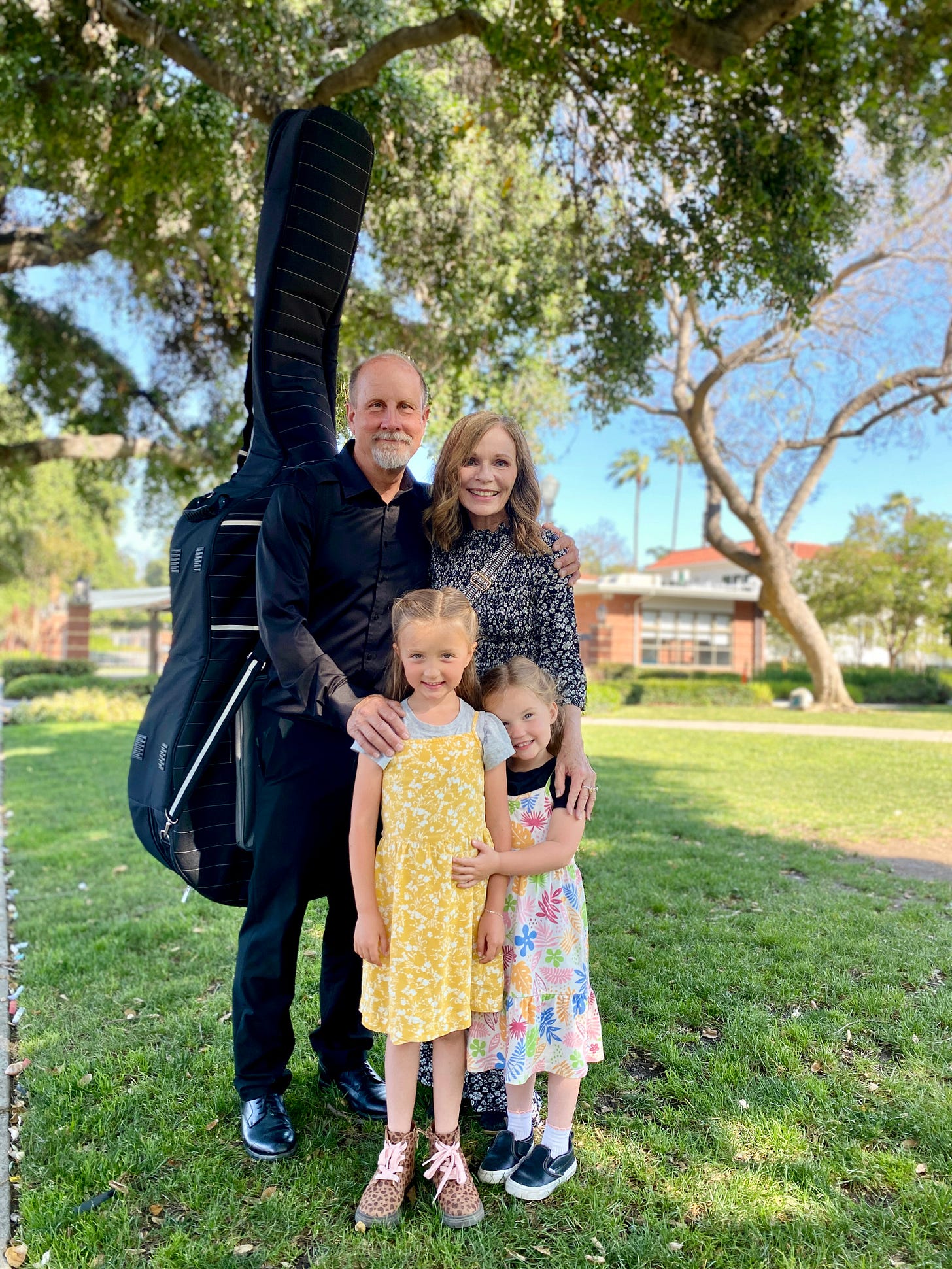In all forms, music can breath life. It carries us to places we might never see, lifts our imagination, lends memory, joy to treasured moments and helps us mourn. Mourn in a way that says we are not alone. Music is a gift from God. Built into some of us so intricately it’s almost unexplainable. Match that with passion and music becomes eternal, unstoppable.
Music is supernatural therapy in most contexts.
This is, and has always been, about keeping a record for our family. For future generations.
I wanted to honor my husband with this recording. It’s pretty good sound-wise. Can’t beat the acoustics of an old church built by masters. (other things to think about :)
May 18th was the season finalé for the Southland Symphony, conducted by Dr. Sylvia Mann, with special guest, cellist Ruslan Biryukov, a Russian immigrant, founder of the Glendale Philharmonic Orchestra and Artistic Director of Positive Motions Concert Series in Los Angeles — premiering a composition for the first time in the U.S. titled “Aria para violoncello y orquesta,” by modern day Argentine double bassist and composer Andrés Martin. I am a huge fan of modern composer Max Richter, and this piece, no exception, was spectacular to my ears. It's comforting to know classical music continues to thrive in the young.
Exposure is everything. Take your children to a classical concert. Play it in the house.
I took a seat in the small, packed historical church, built by the Chaffey Brothers — dedicated in 1895. The first 1:20 is warmup with “bits” of Fanny Mendelssohn Hensel’s “Overture in C Major” from 1832. (John is playing on the far right).
If you enjoy small 10 minute breaks listening to music or watching musicians, who seem to be everywhere in our midst, working, driving, practicing in the wee hours, performing magic in tiny and large venues all over the world — the video above is not at all professional or perfect. Just the no. 1 super-fan wife of a lifelong double bass player that can hardly believe she gets to bear witness to such beauty and positive example. After 50 years on double bass, John is experiencing the kind of “catching your breath pain” in his left forefinger, that one gets if you just move a body part ever so slightly. Using his hands for the last 40 years in electrical work, it’s no doubt this was coming :( — He has hardly required any kind of medical help or a doctor over the years, but after three tests, including an MRI, it is severe arthritis. He’s now trying to relearn/compensate in a different way. On a double bass, the left forefinger (or index finger) is primarily used for pressing down on the strings to produce different notes. It's one of the main fingers used in a standard fingering system for lower positions on the fingerboard.
As a sidenote, many of these musicians play in several professional orchestras/symphonies around Southern California.
Enjoy!
Thank you so much for your interest in my writings. Presently, for over a month, Substack has taken The Family We Keep out of the carousel, at the top of your Substack App, or app-based view and for the most part most notes are hidden also. Algorithms bite - but we’ll keep going and trusting that whoever, (besides friends and family), is supposed to see this, will. I changed the background to black and everything changed in the algorithm/web problem game. If one person receives joy or is comforted by our work — then we have done our job by fulfilling our purpose. Maybe you can say “hi” if you see this anywhere other than email :)
love, deb ox
Here are a few stories/essays I published about music:
In September of 2022, three months shy of writing on Substack, I posted a piece called Classical Music and share a short background on Vivaldi at the end.
…and a circular tale I wrote in March of 2023 titled Schubert, Goethe and The Erl-King
If a Note Were a Word and words were added was written in May of 2023
and this piece with a few short clips of the Southland Symphony (with other phenomenol guest artists) at the end from February 2024 — and in case you missed it I recently reshared a piece about culture titled “The Best of You.” At the end I write about another classical concert and the music. Specifically what the composers were up against culturally and also how their creativity was controlled by governments.
Nothing new under the sun :)













Share this post